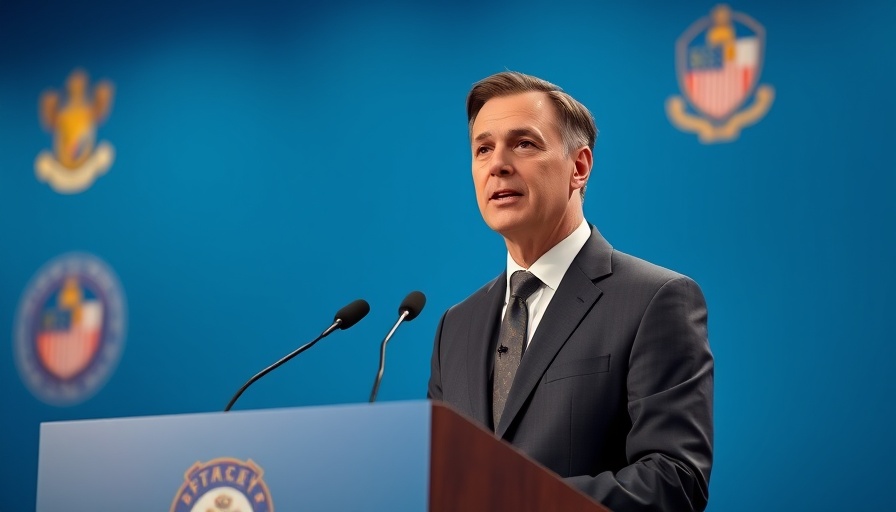
Buttigieg’s Decision: A Strategic Move for 2028 Presidential Race
Former Transportation Secretary Pete Buttigieg has made a significant political decision by declaring that he will not pursue the open U.S. Senate seat in Michigan. This move leaves much speculation as to whether he is setting himself up for a more ambitious run for the presidency in 2028. Buttigieg's announcement came after months of deliberation regarding his next steps following his tenure in the Biden administration.
Political Implications in Michigan
Buttigieg's withdrawal from the Senate race shakes up an important electoral landscape in Michigan, following the retirement announcement of Democratic Senator Gary Peters. The race to fill this seat is crucial, especially since Michigan has been a battleground state, with significant implications for both parties. Reports indicate that state Senator Mallory McMorrow is gearing up to launch her campaign, signaling a new direction for the Democratic Party in the state. Meanwhile, Republicans see this as a vital opportunity to reclaim a seat that has remained Democratic for decades.
Looking to the Future: Buttigieg's Aspirations
The decision to focus solely on a presidential run illustrates Buttigieg's ambitions for a national leadership role. His previous presidential campaign in 2020 showcased his ability to resonate with voters across various demographics, making him a strong contender should he choose to run in 2028. A close look at recent polling indicates he is currently viewed as one of the top choices among Democrats, second only to former Vice President Kamala Harris. Experts suggest that Buttigieg's strong communication skills and connections will support his positioning as a leading candidate for the party's nomination.
National Leadership and the Democratic Party
As the Democratic Party seeks fresh leadership and strategies ahead of the next election cycle, Buttigieg’s withdrawal from the Senate race may actually bolster these efforts. While some analysts argue that his decision may weaken the party's chances in Michigan in 2026, others believe it frees him to mobilize support for a broader national campaign. Engaging with both traditional and digital platforms could be pivotal in connecting with younger voters who are increasingly engaged in politics.
Community Engagement: A Focus on Local Issues
In his recent statements, Buttigieg expressed his commitment to addressing community concerns by emphasizing a "politics of everyday life." This approach aligns with his intention to engage with a diverse audience to redefine the party’s messaging and outreach. As he builds upon his Midwestern roots and experiences in Michigan, Buttigieg aims to cultivate a sense of relatability and connect his political vision to the everyday needs of citizens.
Conclusion: What Comes Next?
Buttigieg's decision not to seek the Michigan Senate seat opens up significant possibilities for both him and the Democratic Party. This clear choice signifies his commitment to positioning himself for a potential presidential run, which may mobilize support from Democrats looking for innovative leadership. As we head toward the 2028 election, eyes will be on Buttigieg as he navigates his role in shaping the future for his party and the American political landscape.
 Add Row
Add Row  Add
Add 




 Add Row
Add Row  Add
Add 

Write A Comment